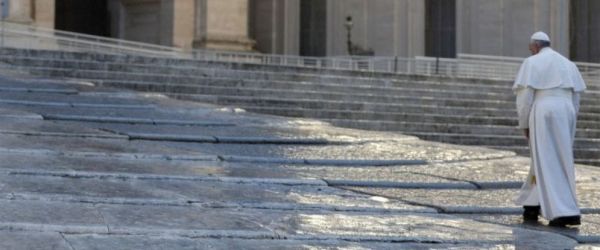"If the encounter with God in all things is not an 'empirical eureka'," I say to the Pope, "and if it is therefore a journey that reads history, mistakes can also be made...".
"Yes, in this seeking and finding God in all things there always remains an area of uncertainty. There has to be. If a person says that he has met God with total certainty and is not touched by a margin of uncertainty, then it is not good. For me, this is an important key. If one has the answers to all the questions, then that is proof that God is not with him. It means that he is a false prophet, who uses religion for himself. The great leaders of God's people, like Moses, always left room for doubt. One must leave room for the Lord, not for our certainties; one must be humble. There is uncertainty in all true discernment that is open to the confirmation of spiritual consolation'.
"The risk in seeking and finding God in all things is therefore the desire to make things too explicit, to say with human certainty and arrogance: 'God is here'. We would only find a god to our measure. The correct attitude is the Augustinian one: seek God in order to find him, and find him in order to always seek him. And we often search by trial and error, as we read in the Bible. This is the experience of the great Fathers of the faith, who are our model. We must reread chapter 11 of the Letter to the Hebrews. Abraham set out without knowing where he was going, by faith. All our ancestors of faith died seeing the promised goods, but from afar.... Our life is not given to us as an opera booklet in which everything is written, but it is going, walking, doing, seeking, seeing... One must enter into the adventure of seeking the encounter and letting oneself be sought and encountered by God"[...]
"If the Christian is restorationist, legalist, if he wants everything clear and sure, then he finds nothing. Tradition and the memory of the past must help us to have the courage to open up new spaces to God. Those who today always seek disciplinary solutions, those who tend in an exaggerated manner towards doctrinal 'security', those who obstinately seek to recover the lost past, have a static and regressive vision. And in this way, faith becomes one ideology among many. I have a dogmatic certainty: God is in the life of every person. Even if a person's life has been a disaster, if he is destroyed by vices, drugs or whatever, God is in his life. One can and must seek Him in every human life. Even if a person's life is a soil full of thorns and weeds, there is always a space where good seed can grow. One must trust in God".
[Pope Francis, Interview by A. Spadaro, in L'Osservatore Romano 21/09/2013]












